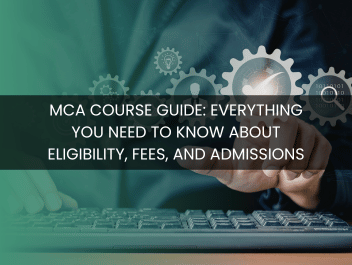
Unique Ways to Tackle the Question Why Should We Hire You?
As job seekers navigate the labyrinth of the interview process, they often stumble upon the pivotal question: why should we hire you? It's a question that, while seemingly straightforward, holds the key to differentiating oneself from scores of similarly qualified candidates. Understanding the purpose behind this inquiry helps candidates evolve from giving rote responses to delivering answers that resonate with hiring managers.
The article dives into unique strategies to craft the most compelling answer to why should you be hired for this role. Through a thorough understanding of personal strengths, aligning them with company goals, and conducting an in-depth company analysis, job seekers can deftly navigate this query. By demonstrating cultural fit, addressing employer challenges, and employing the "bonus feature" strategy, you can tackle why should we hire you with finesse.
By avoiding generic responses and instead backing claims with concrete examples, the article aims to equip you with skills to convey genuine enthusiasm and passion. From highlighting unexpected skills to tailoring your response to the job description, this piece will guide you in practicing for the big day, steering clear of common pitfalls, and ultimately ensuring that during your next interview, you're ready with the best answer to why should we hire you.
Table of Content
- 1. Understanding the Question's Purpose
- 2. Leveraging Your Unique Strengths
- 3. Aligning Personal Strengths with Company Needs
- 4. Conducting a Company Deep Dive
- 5. Addressing Specific Employer Challenges
- 6. The "Bonus Feature" Strategy
- 7. Highlighting Unexpected Skills or Experiences
- 8. Avoiding Generic Responses
- 9. Backing Claims with Concrete Examples
- 10. Conveying Enthusiasm and Passion
- 11. Tailoring Responses to the Job Description
- 12. Practicing Your Delivery
- 13. Common Pitfalls and How to Avoid Them
Understanding the Question's Purpose
When asked "why should we hire you," interviewers aim to gauge how well you fit the role and the company culture. This question helps identify candidates who can make a positive impact. Your response should highlight relevant skills and experiences that align with the job description.
Key Points to Address:
- Showcase
Your Value:
- Emphasize relevant experience and soft skills.
- Provide valuable insights from a previous role or project.
- Demonstrate
Fit:
- Explain why you are fit for the job based on job requirements.
- Illustrate how your background matches the company's needs.
- Highlight
Unique Qualities:
- Mention your ability to work in fast-paced environments or cross-functional teams.
- Share specific examples of organizational or technical skills.
Tips for a Strong Answer:
- Keep responses concise and directly related to the role.- Use the interview question to emphasize your strengths as an ideal candidate.
- Convey enthusiasm and a deep understanding of the company's goals.
Understanding why you are asked these job interview questions allows you to prepare a tailored and effective response.
Leveraging Your Unique Strengths
In today's competitive job market, understanding and leveraging your unique strengths can give you an edge over other candidates. Recognizing why should we hire you is crucial. By identifying these strengths, you can present a compelling reason why should you be hired for this role.
Key Steps to Leverage Your Strengths:
- Self-Assessment: Understand your skills. Are you a team player? Do you have strong analytical skills or technical expertise?
- Alignment with Job Requirements: Match your skills with what the potential employer seeks. For instance, if they value organizational skills, highlight how you managed projects in previous roles.
- Highlight Unique Traits: If you are a fresher, emphasize fresh perspectives or why should i hire you best answer for your eagerness to learn.
- Provide Evidence: Use examples to support why should we hire you best answer. This could include past successes or positive impacts you've had in previous roles.
By accurately presenting your strengths, you can effectively answer interview questions like why do you think you are fit for this job and why should we select you. This demonstrates why we want to hire you and how you are a valuable asset.
Aligning Personal Strengths with Company Needs
Aligning personal strengths with company needs is crucial in today's job market. Understanding why you should be hired and why you are fit for the job can create a positive impact in interviews. Begin by matching your strengths to the key requirements of the job description. If the role demands technical skills, highlight your technical background. If it values a team player, emphasize your ability to work well in cross-functional teams.
Personal Strengths Alignment
|
Strength |
Relevant Role Requirement |
|
Analytical Skills |
Data Analysis, Strategic Planning |
|
Interpersonal Skills |
Building Client Relationships |
|
Organizational Skills |
Project Management, Meeting Deadlines |
|
Technical Skills |
Software Development, IT Management |
Listing your skills in context with the company's needs helps interviewers visualize you in the role. Discussing your previous role can demonstrate your suitability for fast-paced environments or revenue growth initiatives.
Tips:
- Research the company culture.
- Identify your relevant skills.
- Communicate how these can drive the company's success.
This strategic alignment sets you up as a candidate capable of delivering valuable insights and a strong positive impact in your prospective position.
Conducting a Company Deep Dive
Conducting a Company Deep Dive: An Essential Guide
Conducting a company deep dive is crucial for understanding a business’s strengths and weaknesses. This process evaluates various aspects such as financial performance, market position, and company culture. Here's how to get started:
- Financial Analysis: Examine financial statements to assess revenue growth and profitability. Identify trends and potential challenges.
- Market Position: Analyze the competitive landscape. Understand where the company stands relative to competitors and its market share.
- Company Culture: Investigate organizational and team dynamics. This includes evaluating employee satisfaction and retention rates.
- SWOT Analysis: Conduct a SWOT analysis to identify Strengths, Weaknesses, Opportunities, and Threats.
- Stakeholder Review: Explore relationships with stakeholders, including investors and suppliers, to gauge company reputation.
|
Key Area |
Focus Points |
|
Financials |
Revenue growth, profitability |
|
Market Position |
Competitive landscape, market share |
|
Company Culture |
Employee satisfaction, retention |
|
SWOT Analysis |
Internal and external factors |
|
Stakeholder Review |
Relationships and reputation |
A thorough company deep dive provides valuable insights for decision-making, enhancing strategic planning and future success.
Demonstrating Cultural Fit
When applying for a job, showing cultural fit is crucial. It goes beyond having the relevant skills or meeting the job description. Employers seek ideal candidates who align with the company culture and values.
Why Should We Hire You? Understanding the company culture allows you to integrate smoothly and work efficiently with cross-functional teams.
Why Should You Be Hired for This Role? Showcase traits aligning with company values to prove you're a good team player with strong interpersonal skills.
How to Demonstrate Cultural Fit:
- Research - Learn about the company culture, values, and mission.
- Reflect - Align your personal and professional values with theirs.
- Communicate - Use examples in the interview about your relevant experience and how you fit into similar past environments.
Sample Answer: "In my previous role, I thrived in fast-paced environments where teamwork was vital. I am a quick learner eager to contribute to your sales team."
The answer to this question often lies in understanding the why should we hire you sample answer. Remember, it's not just about technical skills, but being the right fit.
Addressing Specific Employer Challenges
In today's fast-paced environments, potential employers seek candidates who can effectively address their specific challenges. Understanding the job requirements is crucial. By tailoring your why should you be hired for this role answer, you can demonstrate your value.
Employers often look for a mix of technical, analytical, and interpersonal skills to tackle problems. Consider these key areas when responding to interview questions:
- Technical Skills: Showcase your relevant skills, such as software proficiency or project management tools, that align with the role.
- Analytical Skills: Highlight your ability to analyze data, draw insights, and make informed decisions, which is vital for a positive impact.
- Interpersonal Skills: Your capability to work with cross-functional teams speaks volumes about your fit within the company culture.
|
Skill Type |
Why It's Important |
|
Technical Skills |
Solves technical issues, enhances efficiency |
|
Analytical Skills |
Supports strategic planning, drives growth |
|
Interpersonal Skills |
Encourages team collaboration, boosts morale |
Be a team player who understands the employer’s needs and offers valuable insights. This approach can help you articulate the best answer to the question why should I hire you, and make a positive impact in your potential role.
The "Bonus Feature" Strategy
The "Bonus Feature" strategy is a powerful approach used by businesses to enhance their product or service offerings. This strategy involves adding extra features or benefits—often at no additional cost—to entice potential customers and increase sales. The idea is to provide customers with more value than they expect, which can set a product apart from competitors.
Key Benefits of the "Bonus Feature" Strategy:
- Differentiation: Stands out in a crowded market.
- Customer Loyalty: Builds trust and repeat business.
- Increased Value: Customers perceive higher value, enhancing
profitability.
|
Bonus Features |
Potential Impact |
|
Free Add-ons |
Boost customer satisfaction |
|
Extended Guarantees |
Increase perceived security |
|
Exclusive Content |
Enhance user engagement |
By implementing the "Bonus Feature" strategy, companies can create a competitive edge and foster lasting relationships with their customers. This approach not only aids in attracting new customers but also helps in retaining existing ones. Companies can see a positive impact on sales and customer loyalty, making this strategy a win-win situation for both businesses and consumers.
In today's fast-paced environments, having a deep understanding of customer needs and offering valuable insights through bonus features can lead to significant revenue growth.
Highlighting Unexpected Skills or Experiences
Highlighting unexpected skills or experiences in a job interview can set you apart from other candidates. When asked, "Why should we hire you?" or "Why should you be hired for this role?" focus on skills and experiences that may not be common but bring value.
For instance, if you've worked in cross-functional teams, mention how this has honed your interpersonal skills and adaptability in fast-paced environments. This unexpected experience can show potential employers that you are a team player who can thrive in diverse settings.
Consider these unexpected skills:
- Multilingual abilities: Enhances communication in a global company.
- Problem-solving in previous roles: Demonstrates analytical skills and a strong background in tackling challenges.
- Volunteer work: Shows organizational skills and a community-oriented mindset.
Table: Unexpected Skills and Their Impact
|
Skill/Experience |
Positive Impact |
|
Multilingual abilities |
Improved communication |
|
Cross-functional teams |
Enhanced teamwork and adaptability |
|
Volunteer work |
Strong organizational skills |
Use these insights to craft your "why should you be hired for this role answer" and make a positive impact during job interviews. This approach offers valuable insights into why you are fit for this job.
Avoiding Generic Responses
Avoiding generic responses during job interviews is crucial for standing out as an ideal candidate. When an interviewer asks, "Why should we hire you?" a tailored, specific answer can make a positive impact.
Key Tips to Avoid Generic Responses:
- Research
the Company:
- Understand its mission and values. Align your answer to show a deep understanding and how you fit within their culture.
- Highlight
Relevant Skills:
- Discuss your technical skills or soft skills that meet the job requirements. Cite examples from previous roles.
- Showcase
Achievements:
- Mention achievements that demonstrate your strong background. Demonstrating a history of success provides valuable insights into what you bring to the table.
- Be
Specific:
- Avoid vague statements. Detail how your unique experience or skills, such as organizational skills or analytical skills, align with the key requirements of the role.
Table: Example Structure for Your Answer
|
Element |
Example |
|
Introduction |
"I believe I am a fit for this job because..." |
|
Skills & Achievements |
"In my previous role, I improved our sales by..." |
|
Company Culture Fit |
"Your company values align with my belief in..." |
|
Closing |
"I am eager to contribute and grow with..." |
By following these guidelines, you offer interviewers specific reasons to see you as the best answer to their question.
Backing Claims with Concrete Examples
When making claims about why we should hire you, it's crucial to back them up with concrete examples. This approach not only strengthens your argument but also gives potential employers a clearer picture of your capabilities.
Key Steps to Backing Claims:
- Identify Relevant Skills: Highlight the skills that match the job requirements.
- Use Specific Examples: Describe past experiences that showcase these skills. For instance, mention a project where your organizational skills led to a 15% increase in efficiency.
- Quantify Achievements: Where possible, use numbers or percentages to convey the impact of your work.
- Align with Company Culture: Explain how your experience aligns with the company's values.
- Demonstrate Active Involvement: Share instances where you played a key role in a successful team project.
Example:
|
Skill |
Example |
|
Organizational |
Managed a team project that improved efficiency by 15%. |
|
Team Player |
Collaborated with cross-functional teams to achieve objectives. |
|
Analytical Skills |
Analyzed sales data resulting in a 10% revenue growth. |
By providing specific, quantifiable examples, you show a potential employer why hiring you would be a smart move.
Conveying Enthusiasm and Passion
Conveying enthusiasm and passion is crucial in any job interview. When an interviewer asks, "Why should we hire you?" your answer should demonstrate your excitement for the role. Enthusiasm shows that you're not only interested in the job but also eager to contribute positively to the company culture.
Here are key points to convey enthusiasm and passion:
- Express genuine interest in the company and its
goals.
- Highlight your relevant skills and how they align with the job
requirements.
- Share specific examples from your previous role where your passion led
to a positive impact.
- Be a team player by showing your ability to collaborate effectively
within cross-functional teams.
- Discuss how your deep understanding of the field makes you an ideal
candidate.
Consider preparing a sample answer to the question, "Why should we hire you for fresher?" This will help you succinctly summarize your enthusiasm. By repeatedly practicing your response, you ensure ease of delivery when faced with job interview questions. Remember, showing passion and eagerness can set you apart as someone who is not just suitable, but exceptional for the role.
Tailoring Responses to the Job Description
When preparing for a job interview, it’s crucial to tailor your responses to the job description. Start by highlighting how your relevant skills meet the key requirements laid out in the description. This strategy not only answers "why should you be hired for this role," but also demonstrates a deep understanding of the position.
Key Elements to Tailor Your Response:
- Skill Alignment: Focus on technical, analytical, or interpersonal skills that make you suitable for the job.
- Company Culture Match: Show how you fit in with the company culture and can be a positive impact.
- Experience and Achievements: Discuss relevant experience and achievements from previous roles.
Sample Answer Structure:
|
Job Requirement |
Your Response |
|
Technical Skills |
"I have extensive experience in..." |
|
Team Player |
"I enjoy working in cross-functional teams, as demonstrated by..." |
|
Revenue Growth Experience |
"In my previous role, I contributed to a significant revenue growth by..." |
Tailored responses not only answer "why you should be hired for this role fresher," but also leave a positive impression on your potential employer. It's your chance to show why you are the ideal candidate and why we want to hire you.
Practicing Your Delivery
Practicing your delivery is crucial for acing job interviews. Preparation involves more than just knowing the answers. It means delivering them with confidence and clarity. Here’s how to polish your presentation:
- Record Yourself: Listening to recordings helps identify areas for improvement, like pacing and tone.
- Mock Interviews: Simulate real interviews with friends or mentors. Feedback from them provides valuable insights into your performance.
- Mirror Practice: Speaking in front of a mirror allows you to observe body language and adjust expressions.
- Time Your Responses: Ensure answers fit within a reasonable length. This helps maintain the interviewer’s engagement.
- Key Points List: Create a list of key points tailored to the job description and ideal candidate profile. This ensures you highlight relevant skills and experiences.
Here’s a quick comparison to guide your practice approach:
|
Technique |
Benefits |
|
Recording |
Improves pacing and tone |
|
Mock Interviews |
Offers realistic feedback |
|
Mirror Practice |
Enhances body language |
|
Timing Responses |
Keeps engagement |
By practicing your delivery, you refine not just what you say but how you say it, boosting chances of making a positive impact during job interviews.
Common Pitfalls and How to Avoid Them
Navigating through daily tasks can be tricky. Here are common pitfalls with tips to avoid them:
- Poor
Time Management
- Pitfall: Overscheduling leads to stress.
- Solution: Prioritize tasks using a planner.
- Lack
of Communication
- Pitfall: Misunderstandings arise.
- Solution: Encourage open dialogue and active listening.
- Avoiding
Feedback
- Pitfall: Limits improvement.
- Solution: Seek constructive criticism regularly.
- Resistance
to Change
- Pitfall: Stagnates growth.
- Solution: Stay adaptable and open to new ideas.
- Neglecting
Self-Care
- Pitfall: Leads to burnout.
- Solution: Schedule regular breaks and leisure activities.
Tips to Remember:
- Keep communication channels open.
- Use time management tools.
- Accept and learn from feedback.
- Embrace new processes willingly.
- Care for your mental and physical health regularly.
Implement these strategies for a more efficient and fulfilling routine.
Looking For Job Satisfaction on the long run?
Please feel free to contact our experts
Call to ask any question
+91-9319336222Monday to Saturday
(9:00 AM to 8:00 PM)Resent Blogs
10 Things to Do During an Interview to Impress Your Future Employer
Learn MoreCrafting Your Personal Narrative: A Guide to Writing About Yourself
Learn MoreTop 10 Essential Interview Questions and Expert Answers for 2025
Learn MoreAce Your Next Interview: Essential Questions and Expert Answers for 2025
Learn MoreFirst-Time Manager Interview: Crucial Questions and Strategies for Success
Learn More150 Essential General Knowledge Questions for Interviews in 2025
Learn MoreMaster the Google Interview: Strategies for Success in 2025
Learn MoreHow Can You Describe Yourself Professionally? 5 Key Strategies You Need to Know
Learn MoreMastering the Art of How to Take Interview: Essential Techniques for Success
Learn More25 Essential HR Interview Questions and Answers PDF You Can't Ignore
Learn More7 Tips to Ace Your HR Screening Round and Land Your Dream Job
Learn More10 Essential Tips for Acing Your Interview Exam
Learn More5 Unique Interview Format Examples to Stand Out in Your Next Interview
Learn More5 Powerful Techniques for a Memorable Interview Introduction
Learn MoreMaster Your Next Interview with These Top Interview Preparation Apps
Learn MoreMastering the Art: Top Interview Questions for 12th Class Students
Learn More7 Must-Know Interview Questions for Freshers to Ace Your Job Hunt
Learn MoreMastering Interview Questions for HR Position with Answers: Strategies for Success
Learn More12 Essential Interview Questions for Recruiter Position You Should Prepare For
Learn More10 Must-Know Interview Questions UK Employers Love to Ask
Learn More10 Creative Interview Writing Examples to Spark Your Imagination
Learn More15 Essential Managerial Interview Questions for Freshers to Prepare
Learn More15 Unique Marketing Interview Questions You Haven't Prepared For
Learn More7 Key Strategies for a Successful Mock Interview Session
Learn MoreThe Ultimate Guide to Model Interview Questions: What You Need to Know
Learn More5 My Self Question Exercises to Unlock Your True Potential
Learn More10 Normal Questions That Can Spark Deep Conversations
Learn More15 Essential Personal Interview Questions for Freshers to Ace Your Next Job
Learn More10 Essential Phone Interview Questions You Can’t Afford to Ignore
Learn More15 Essential Sales Interview Questions and Answers for Freshers
Learn More7 Key Situational Interview Questions Every Employer Should Ask
Learn More15 Essential Software Developer HR Interview Questions You Need to Prepare For
Learn MoreMastering the Technical Interview: Essential Questions and Answers
Learn MoreTop Strategies for Responding to Tell Me About Yourself in a Student Interview
Learn MoreTop 10 Interview Questions and Expert Answers
Learn MoreMastering the Art of Interviewing: 50 Tough Questions and Smart Answers
Learn MoreHow to Ace Your Next Mock Interview: Tips and Strategies for Success
Learn MoreYour Ultimate Guide: 60 Insightful Questions to Ask Interviewers
Learn MoreCrafting the Perfect Response to Why Do You Want This Job?
Learn MoreUnique Ways to Tackle the Question Why Should We Hire You?
Learn MoreWhy Should We Hire You? - Top 10 Answers for Customer Service Roles
Learn MoreMastering the Art of Discussing Work Experience in Interviews
Learn MoreMastering Your Sales Interview: 50 Essential Questions and Answers
Learn MoreCareer Paths After 12th Commerce: Your Future Starts Here
Learn MoreExplore One-Year Courses After 12th for Non-Medical Students
Learn MoreQuick Career Paths: 2-Year Degree Courses After 12th for Fast-Track Success
Learn MoreComprehensive Guide: Courses After 12th Commerce
Learn MoreTop 10 Lucrative Courses to Consider After Completing Engineering
Learn MoreAdvancing Your Career: Top Choices After B.Tech in 2025
Learn MoreExplore Your Future: After CET Exam Which Course is Best for Aspiring Professionals?
Learn More5 Reasons Why After Inter CEC, Choosing the Right Course is Crucial
Learn MoreAfter PUC Which Course is Best for Aspiring Engineers? Explore Your Options!
Learn MoreUnlocking Your Future: Best Arts and Science Courses After 12th for 2025
Learn MoreWhy a Bachelor Degree in Commerce is Your Pathway to Success
Learn More15 Best Career Courses to Boost Your Earning Potential in 2025
Learn MoreEmerging Career Fields for 2025: What You Need to Know
Learn MoreExploring In-Demand Career Paths After 12th: Science, Arts, Commerce
Learn More15 Lucrative Science Careers You Should Consider
Learn MoreHigh-Paying Career Paths for Girls After 12th Commerce
Learn MoreTop 10 High Salary Career Courses After 12th Biology
Learn MoreTop 10 High-Paying BSc Specializations for 2025
Learn MoreExploring the Future: Innovative Career Paths for B.Tech Graduates in 2025
Learn MoreComprehensive Guide to B.Tech Specializations for MPC Graduates
Learn MoreUnlocking Your Potential: The Ultimate B Tech Job List for 2025
Learn MoreB.Tech Salary Insights: How Much Can You Earn Per Month?
Learn MoreEssential Business Courses After 12th: Your Guide to a Successful Career
Learn MoreHow Commerce Students Can Transition to BSc IT
Learn MoreExploring Career Paths After 12th: Your Guide to Success in 2025
Learn MoreCertainly! Here are 10 additional title ideas inspired by the list you provided
Learn MoreExploring Career Paths After Engineering: Your Guide to the Future
Learn MoreThe Ultimate Guide to Career Options Post-High School Graduation
Learn MoreDiscover the Top 10 Chemistry Courses After 12th That Lead to High-Paying Jobs
Learn MoreExplore the Best Diploma and Certificate Programs After 12th Commerce
Learn MoreCareer Paths for Computer Science Graduates: Top Opportunities to Explore
Learn MoreExplore Top Courses After 12th: Your Path in Science, Arts, or Commerce
Learn MoreTop 10 Courses After 12th Commerce for a Successful Career
Learn MoreTop Paying Professional Courses After 12th for Commerce Students
Learn MoreEmerging Career Paths After 12th Commerce Without Maths
Learn MoreExploring Career Paths After 12th Science: A Complete Guide
Learn MoreComprehensive Guide to Courses and Career Paths after 12th Grade
Learn MoreEmerging Career Paths in India: What to Expect in 2025
Learn MoreTop Diploma Paths for Students After Completing 12th Science
Learn MoreTop 15 Easiest High-Paying Jobs to Pursue in India by 2025
Learn MoreNavigating Your Future: Easy Degree Options After 12th
Learn MoreExploring Top Engineering Branches After 12th: A Comprehensive Guide
Learn MoreExploring Advanced Studies: Top Entrance Exams for Engineering Graduates
Learn MoreMBA Salary Insights: Top Packages and Compensation Trends in India
Learn MoreTop 15 Lucrative Careers in India for 2025
Learn MoreTop 10 High-Paying Jobs for Commerce Graduates Without Maths
Learn MoreTop 10 High Salary Courses After 12th PCB for Future Success
Learn MoreHigh-Earning Courses to Pursue After 12th Science in 2025
Learn MoreHigh Paying Career Paths for BiPC Students: Top 10 Courses to Consider
Learn MoreExploring High-Paying Engineering Degrees for the Future
Learn MoreExploring Integrated Courses After 12th: A Comprehensive Guide for Students
Learn MoreExploring Career Prospects: What Can You Do with a BBA Degree?
Learn MoreTop 15 In-Demand Professional Courses for Commerce Graduates in 2025
Learn MoreExploring Lucrative Job Paths for BBA Graduates in 2025
Learn MoreMBA Full Form Explained: Master of Business Administration & Its Strategic Career Value
Learn MoreBBA Full Form: The Definitive Guide to BBA Degrees, Admissions, & Career Paths
Learn MoreBCA Full Form Explained: Your Complete Guide to the Degree, Admission & Career Scope
Learn MoreIAS Full Form: Indian Administrative Service Explained & Its Pivotal Role
Learn MoreMBBS Full Form: Unraveling the Meaning Behind a Doctors Qualification
Learn MoreUPSC Full Form: Union Public Service Commission and Its Vital Role
Learn MoreBSc Full Form: Bachelor of Science & What It Means for Your Future
Learn MoreITI Full Form: What Exactly is Industrial Training Institute?
Learn MoreLLB Full Form: Your Ultimate Guide to Bachelor of Laws, Eligibility & Career Scope
Learn MoreIs There a True Computer Full Form? Unpacking the Popular Acronym
Learn MoreB.Tech Full Form Unpacked: Meaning, Scope, and Why It Matters for Your Career
Learn MoreIIT Full Form: Unveiling the Indian Institute of Technology and Its Legacy
Learn MoreMCA Full Form Revealed: Master of Computer Applications & Its Significance
Learn MoreIIT Full Form: Indian Institute of Technology – Understanding Its Legacy, Campuses, and Global Standing
Learn MoreYour Complete Guide to Becoming a Veterinarian: Education, Specialties & Career Paths
Learn MoreBSc Degree: Your Complete Guide to Courses, Careers, and Future Prospects
Learn MoreB.Com Full Form Unveiled: What Bachelor of Commerce Truly Means
Learn MoreBAMS Full Form: Bachelor of Ayurvedic Medicine and Surgery — Unpacking Its Meaning & Career Scope
Learn MoreWhat is a Polytechnic? Your Complete Guide to Courses, Admissions & Career Paths
Learn MoreSSC GD Constable Exam News 2025-26: Latest Updates on Vacancies, Dates & Application
Learn MoreHow to Choose the Best Veterinarian for Your Pet: A Comprehensive Guide
Learn MoreAir Hostess 2026: Your Complete Roadmap to Landing the Dream Job
Learn MoreUnlocking Your Future: The Ultimate BSc Degree Guide (Courses, Careers & Admissions)
Learn MoreCMA Full Form: Certified Management Accountant (Global Standard Explained)
Learn MoreNACH Full Form Explained: What It Is & Why It Matters in Banking
Learn MoreThe Modern Anthropologist: Understanding Their Role, Impact, and Diverse Specializations
Learn MoreBBA: Your Ultimate Guide to Course Details, Admission, Fees, and Future Career Prospects
Learn MoreBDS Full Form Unpacked: Your Essential Guide to Dentistry Courses, Admissions & Career Scope
Learn MoreBHMS Full Form Revealed: Your Complete Guide to Bachelor of Homeopathic Medicine & Surgery
Learn MoreB.Tech Admissions 2026: Your Complete Guide to Courses & Eligibility
Learn MoreCFA Full Form: Understanding the Chartered Financial Analyst Designation
Learn MoreMerchant Navy Salary in India: Unveiling Pay Scales by Rank & Experience
Learn MoreTS EAMCET 2026: Official Notification, Exam Dates & Application Guide
Learn MoreVITEEE 2026: Full Guide to Application, Dates, Syllabus & Preparation
Learn MoreBMS Full Form: Unveiling Bachelor of Management Studies & What it Entails
Learn MoreB.Sc. Computer Science: Your Complete Guide to Courses, Careers & Eligibility
Learn MoreComputer Science Explained: From Basics to Advanced Concepts
Learn MoreWorlds Most Difficult Exams: A Definitive Ranking for 2025
Learn MoreUnion Public Service Commission (UPSC): All You Need to Know
Learn MoreBE Full Form Explained: What Bachelor of Engineering Means & Your Career Path
Learn MoreDMIT Full Form Revealed: Unpacking the Dermatoglyphic Multiple Intelligence Test
Learn MoreIndias Most Difficult Exams: The Ultimate Ranking for 2025
Learn MoreCLAT Full Form: Unveiling the Common Law Admission Test + Key Details
Learn MoreHighest Paying Jobs in India: Unveiling the Top 25 Roles & Their Lucrative Salaries
Learn MoreMA Full Form: Unpacking the Master of Arts Degree & What It Entails
Learn MoreMarketing Management Explained: Core Concepts & Strategic Implementation
Learn MoreBCA Course Subjects: A Comprehensive Guide to Your IT Degree Curriculum
Learn MoreCAT Exam Date 2026: When to Apply & Exam Schedule Revealed
Learn MoreCDS Full Form: Unveiling Combined Defence Services & Your Path to Commission
Learn MoreLab Technician Career Path: Duties, Skills, and Salary Guide
Learn MoreYour Complete Guide to Becoming a Successful Software Developer
Learn MoreAir Hostess Course Guide: Everything You Need to Know for Your Aviation Career
Learn MoreIntroduction: Navigating Your Path to Medical Excellence in India
Learn MoreTop Commerce Courses After 12th: Unlock Lucrative Career Paths
Learn MoreTop Industrial Training Institutes: Your Guide to Skilled Trades
Learn MoreUnderstanding Psychometric Tests: Your Definitive Guide & Free Examples
Learn MoreWhat Does a Surgeon Do? A Comprehensive Guide to the Profession
Learn MoreUG Explained: Your Ultimate Guide to Undergraduate Degrees & Admissions
Learn More10th Pass Govt Jobs 2026: Your Complete Guide to Apply & Secure Your Career
Learn MoreATMA: Your Complete Guide to the Management Admissions Test
Learn MoreBHMS Course Guide: Eligibility, Syllabus, Career Prospects & Top Colleges
Learn MoreUnlock Your Future: The Definitive Guide to Career Counselling
Learn MoreWhat Does a Clinical Psychologist Do? Your Comprehensive Guide
Learn MoreM.Tech Full Form: Master of Technology Explained (Meaning, Scope & Benefits)
Learn MoreRadiology Courses Explained: From Certificates to Masters Degrees
Learn MoreBSc Courses Explained: Full Guide to Specializations, Admissions & Career Paths
Learn MoreBSc Nursing Course: Admission Guide, Eligibility, Syllabus & Career Paths
Learn MoreBA LLB Full Form Explained: Unpacking Bachelor of Arts & Bachelor of Laws
Learn MoreTop BBA Colleges in India: Unveiling the Elite Institutions for Your Management Degree
Learn MoreUPSC CDS Exam Date 2026: Complete Schedule & Notification Details
Learn MoreTop Career-Focused Courses After 12th Grade: Unlock Your Future
Learn MoreExplore the World of Humanities Subjects: A Comprehensive Guide
Learn MoreIPU CET 2026: Complete Guide to Applications, Syllabus & Cutoffs
Learn MoreISI Full Form: Unveiling the Meaning & Importance of the Indian Standards Institute
Learn MoreJEE Advanced 2026 Exam Date: When Will the Exam Be Held?
Learn MoreJEE Main 2026 Result Date: When to Expect Session 1 & 2 Results
Learn MoreMCA Course Guide: Everything You Need to Know About Eligibility, Fees, and Admissions
Learn MoreMultimedia Explained: Your Complete Guide to Definition, Examples, and Impact
Learn MoreThe Ultimate Paramedical Courses List: Find Your Perfect Career Path
Learn MorePharm.D. Program: Your Complete Guide to Curriculum, Admissions & Outcomes
Learn MoreThe Ultimate Guide to Top IIT Colleges in India: Ranking, Admissions, and Courses
Learn MoreATC Full Form: Unpacking Air Traffic Control, Anatomy & More
Learn MoreB.Ed. Course Duration in India: Everything Aspiring Teachers Need to Know
Learn MoreB.Sc Psychology Degree: Your Guide to Admissions, Curriculum & Career Paths
Learn MoreB.Tech Computer Science: Your Complete Guide to Admission, Syllabus & Career Prospects
Learn MoreBDS Course Duration: How Long is Bachelor of Dental Surgery?
Learn MoreBFA Full Form Explained: What is a Bachelor of Fine Arts & Why it Matters
Learn MoreConnet Us
Unlock Your Dream Career Potential - Get Expert Advice From Our Counselling Experts









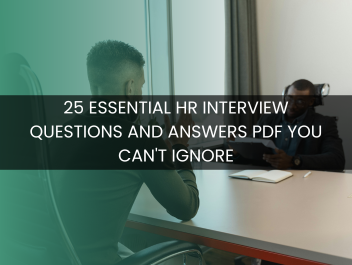




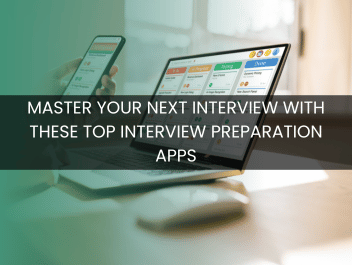









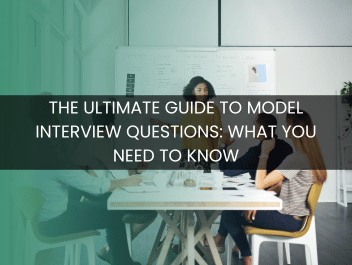





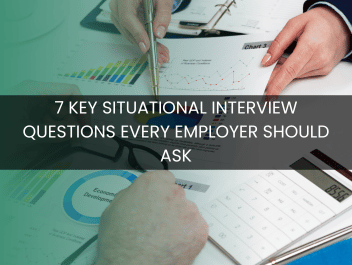



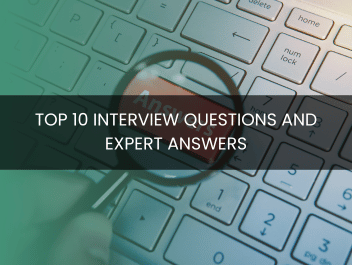











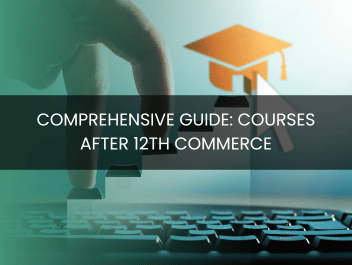





















































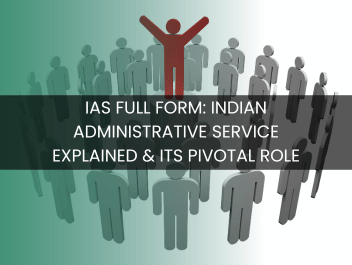















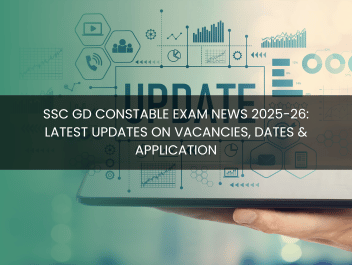


_Thumbnail_.png )
_Thumbnail_.png )









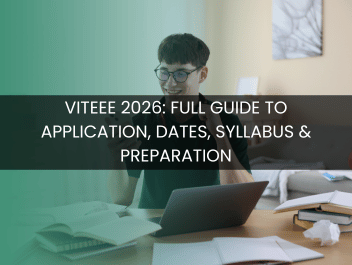




_All_You_Need_to_Know_Thumbnail_.png )






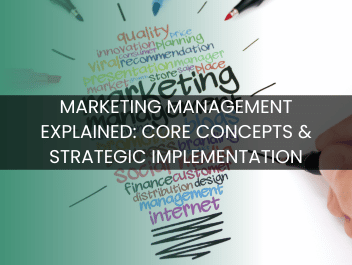
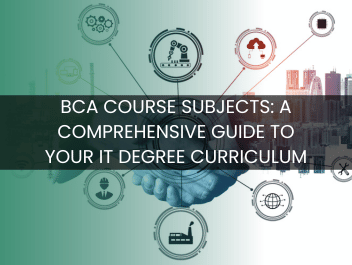

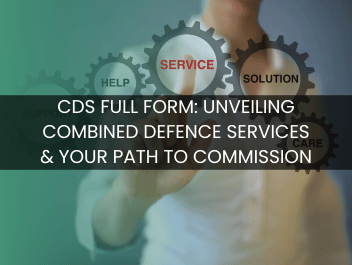

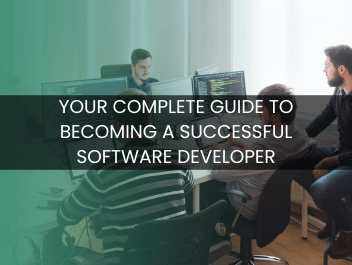










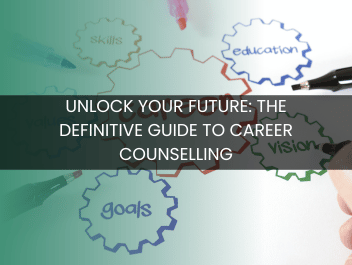

_Thumbnail_.png )












